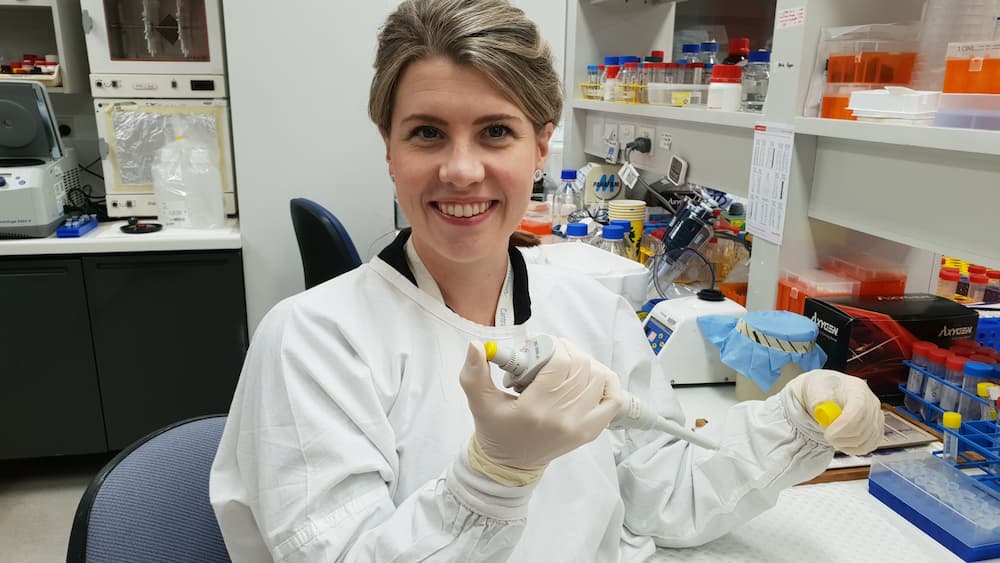Improving outcomes for Australians with an MPN
Dr Liesl Butler is investigating the gene mutations and biological pathways that lead to the development of MPN and hopes to make significant advances in blood cancer research.
The junior haematologist, based at the Australian Centre for Blood Diseases at Monash University (Melbourne), has a strong interest in molecular pathology and is looking to improve outcomes for Australians living with an MPN.
She is undertaking translational research and was awarded a 2020 Leukaemia Foundation of Australia PhD Scholarship, through the Haematology Society of Australia and New Zealand (HSANZ).
This provides funding of $120,000 from 2020 to 2023 and her project title is Development of improved biomarkers and targeted therapies for MPN.
Dr Butler is working under the supervision of Professor Andrew Perkins, a leading haematologist and group leader at the Australian Centre for Blood Diseases at Monash University.
Working as a clinician, Dr Butler appreciates that research is pivotal to successfully treating the blood cancers and she is excited at the prospect of her research being translated into meaningful outcomes for patients.
“Molecular pathology has had a considerable impact on diagnostic and therapeutic approaches in blood cancer,” she said.
“The area is rapidly expanding and its integration into standard practice is drastically improving clinical outcomes.
“I will study the gene mutations and biological pathways that lead to the development of the MPNs by undertaking tests in patient samples and mouse models,” said Dr Butler.
“Molecular techniques are now critical in the detection, classification and monitoring of many blood cancers, and are essential in the development of new treatment strategies and predicting disease response.
“The MPNs are a challenging disease group which causes significant morbidity and can limit life expectancy; the overall biology of these cancers remains elusive and new therapies are desperately needed.
“Additional research in the field will further our understanding of these cancers and lead to developments in treatment, hopefully improving the lives of patients,” said Dr Butler who is in the early stages of her PhD project.
“I have studied the current literature in the field extensively and begun preliminary experiments. Thus far, the results are very encouraging.”
She was “thrilled” to discover that she had been offered the PhD scholarship, overcoming what she considers the biggest hurdle for researchers; funding.
“I feel privileged to have the support of the Leukaemia Foundation and Haematology Society of Australia and New Zealand for my project,” said Dr Butler.
“And I am incredibly grateful to the Leukaemia Foundation supporters aiding my project.
“I look forward to what I can achieve over the next three years with the assistance of the scholarship and hope to make significant advances in blood cancer research.”
Last updated on February 21st, 2022
Developed by the Leukaemia Foundation in consultation with people living with a blood cancer, Leukaemia Foundation support staff, haematology nursing staff and/or Australian clinical haematologists. This content is provided for information purposes only and we urge you to always seek advice from a registered health care professional for diagnosis, treatment and answers to your medical questions, including the suitability of a particular therapy, service, product or treatment in your circumstances. The Leukaemia Foundation shall not bear any liability for any person relying on the materials contained on this website.